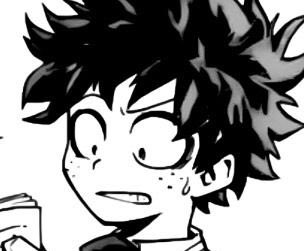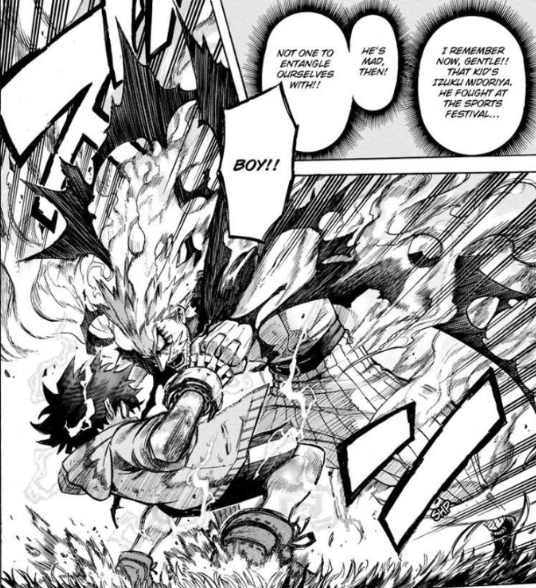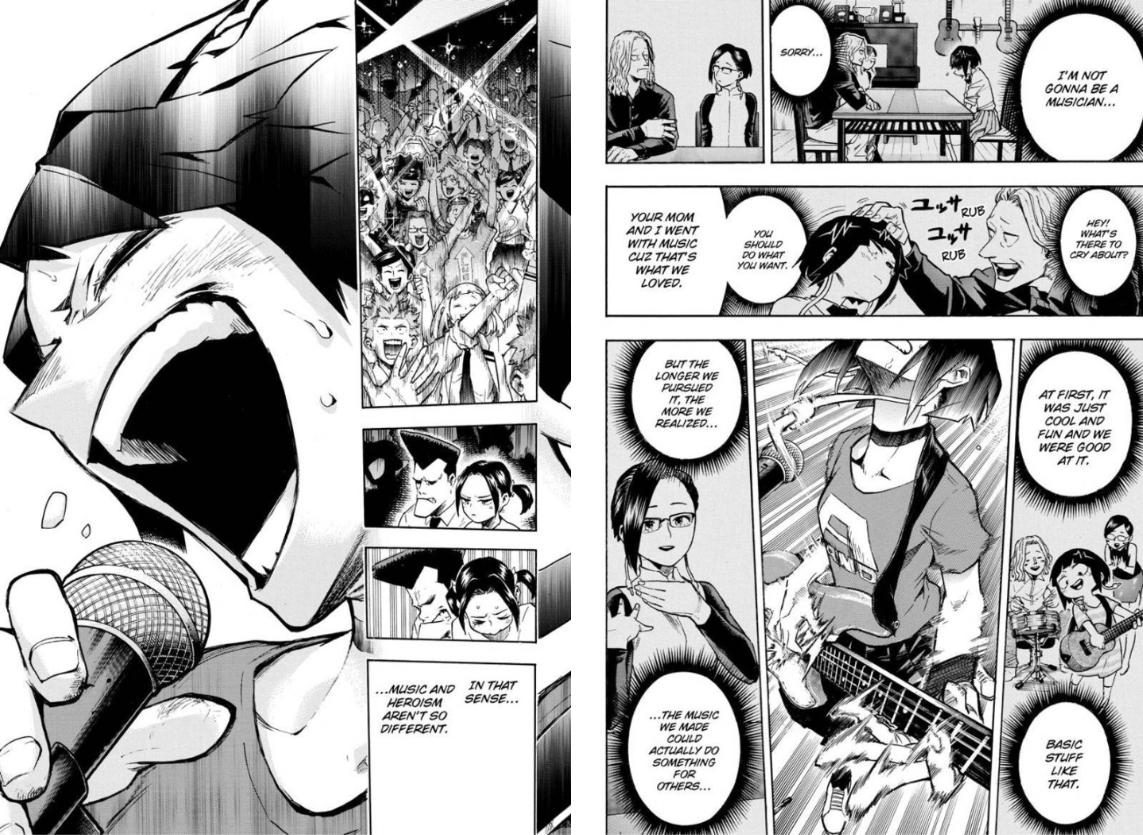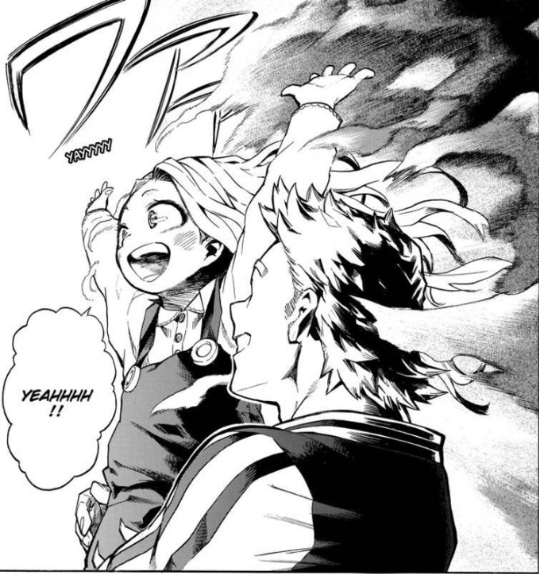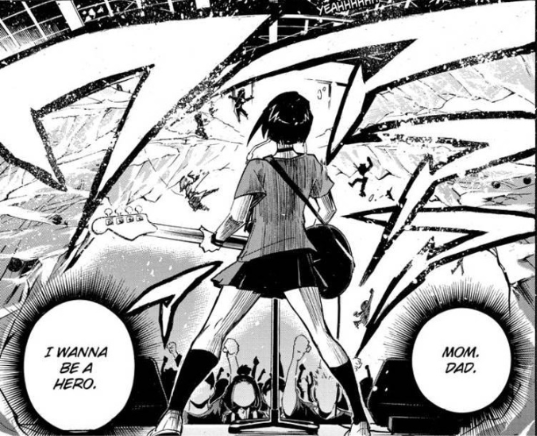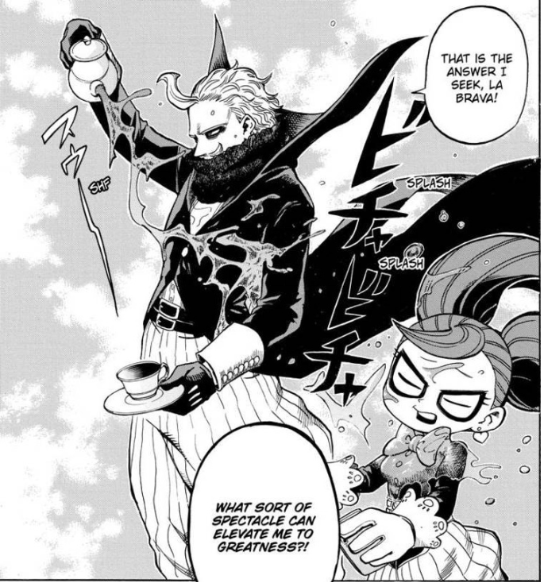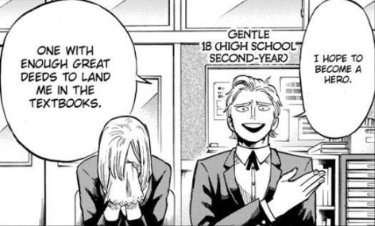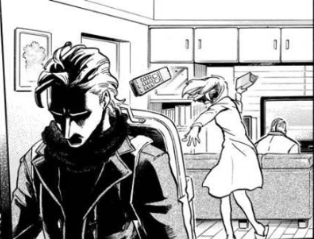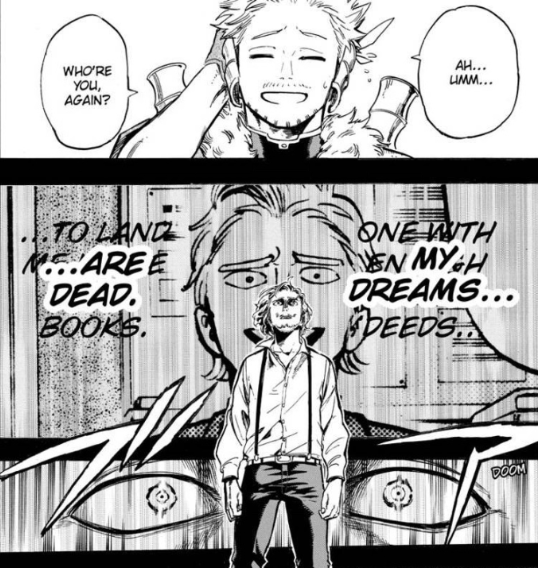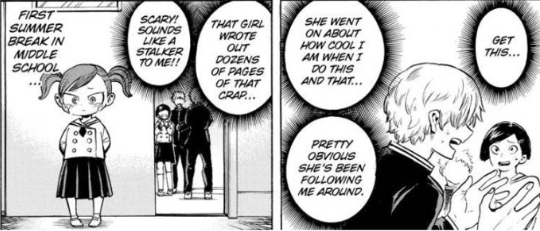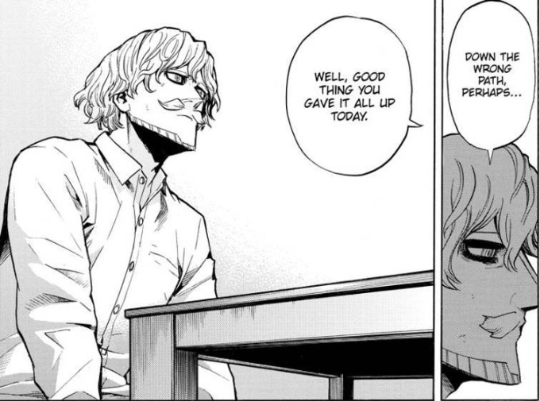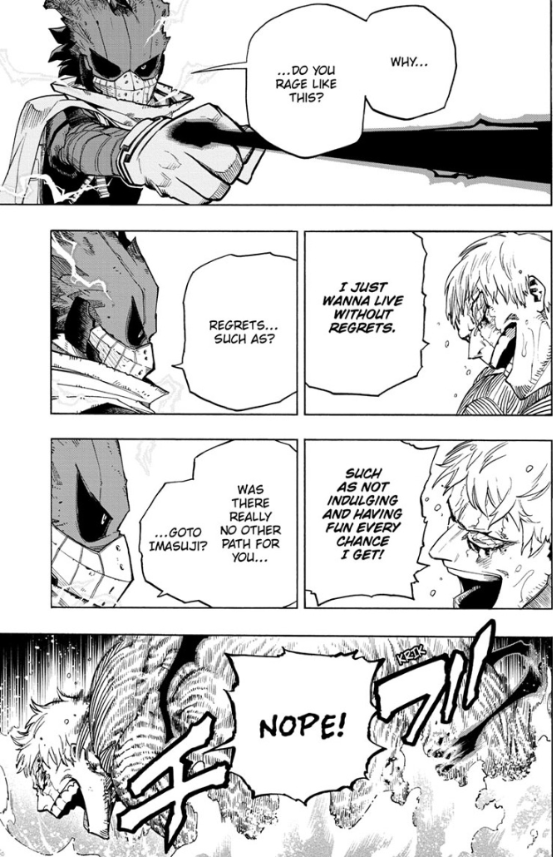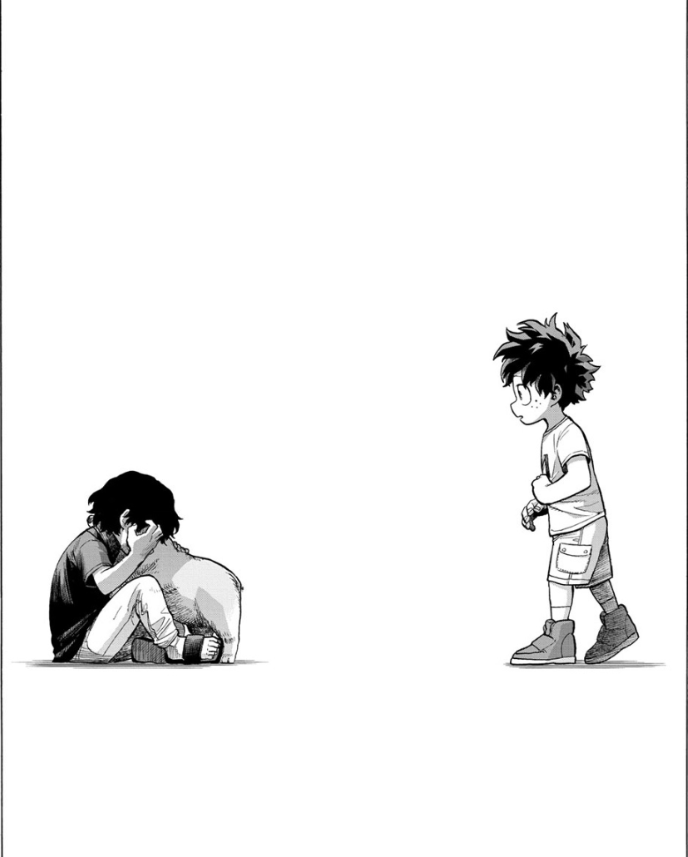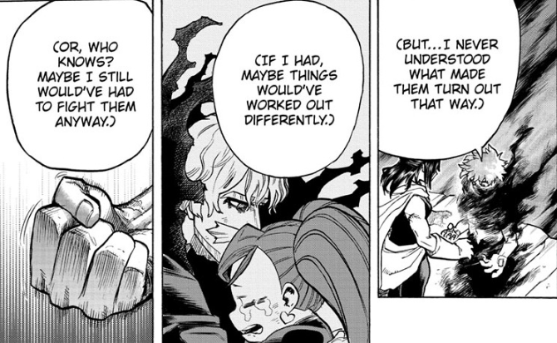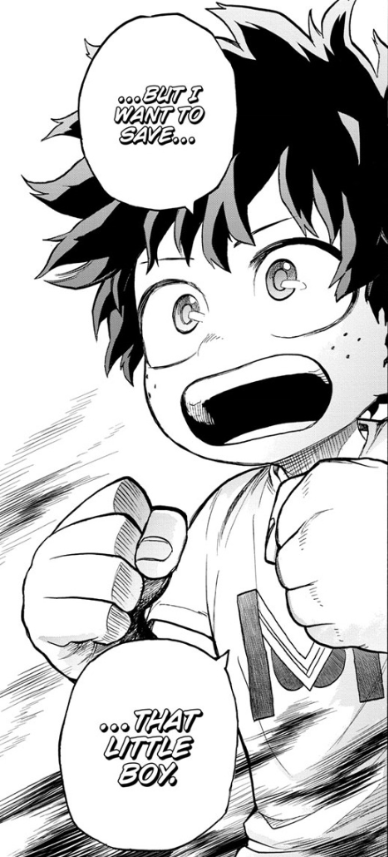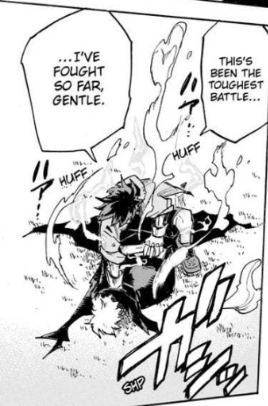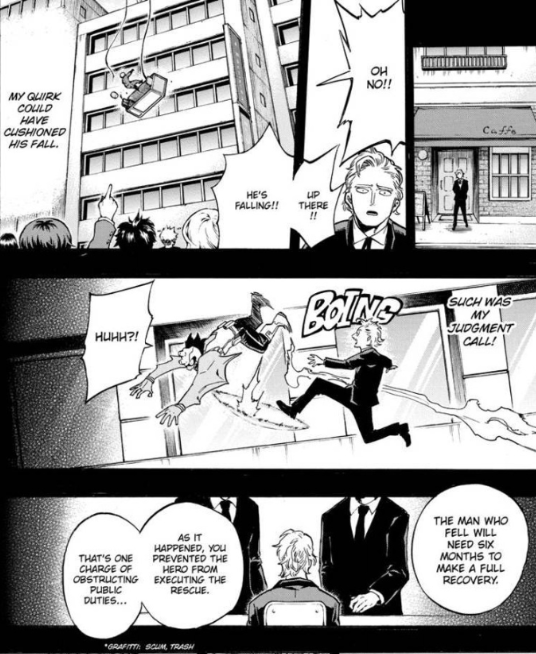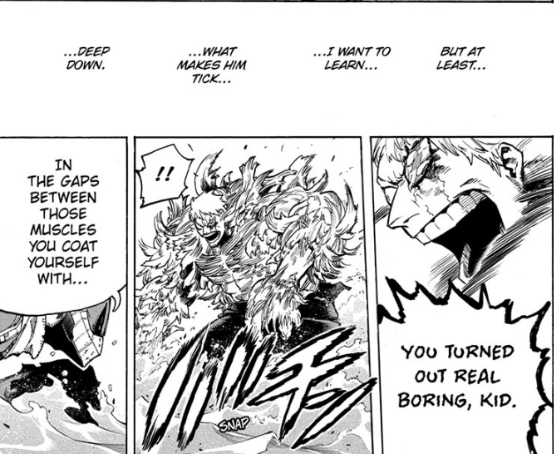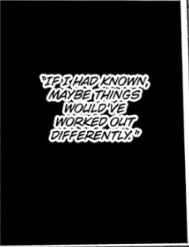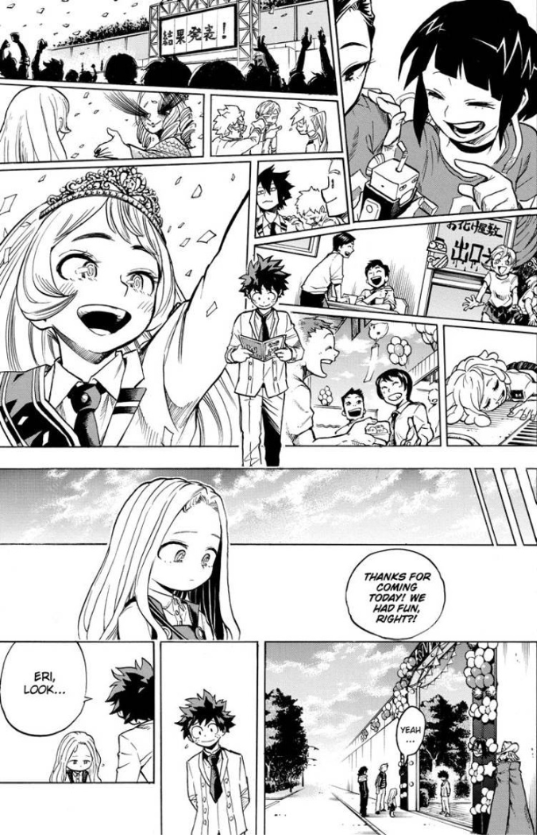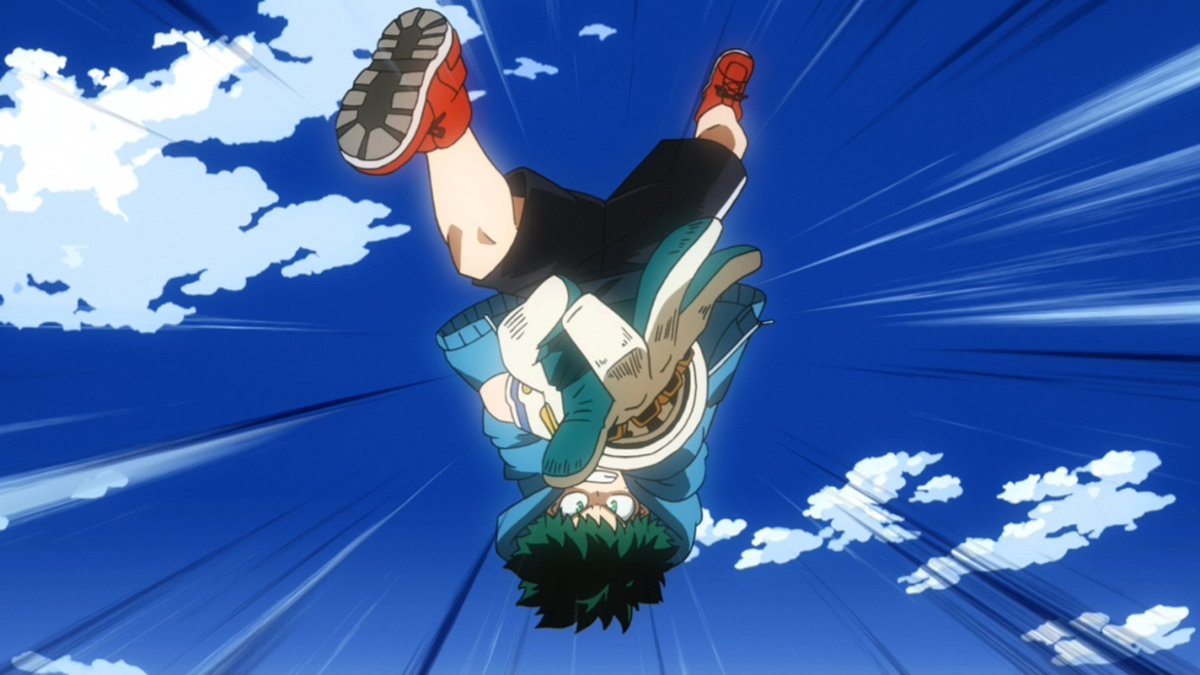The Culture Festival arc of MHA, probably due to it having no LOV presence, is one of the most misunderstood, and unfairly slandered arcs in the series. It is most certainly a quintessential MHA arc and I& #39;m here to talk about why.
[Thread]
[Thread]
The main thing I& #39;m going to address here is the misuse of the word "filler" when referring to this arc. Fillers actual definition is content that wasn& #39;t in the manga, but most people don& #39;t use it like that. They usually mean nothing is gained or lost from the arc and is skippable
The Culture Festival is absolutely not skippable, if that wasn& #39;t clear. Not only does it introduce one of MHAs best villains, it contains progression for Midoriya and his hero ideology that you still feel to this day, character development, and new methods of heroism.
Jiro and Eri are two very pertinent examples of this. Not only do their main development/progression come from this arc, we are shown for the first time that fighting is not the only way to save somebody.
Jiro finds that through her passion for music, she can help Eri work through some of her trauma and save her from the shroud of Overhaul. It introduces a new theme to MHA: Sometimes, fighting is not your only option. There can be other ways to save people.
My friend Bronny has done a fantastic thread on this in the past, so if you want more reading on that please check it out. https://twitter.com/TheAshySavant/status/1371162046688063498">https://twitter.com/TheAshySa...
To further drive this point home, we have the introduction of Gentle and La Brava, two of the most unique villains that MHA has seen. We are introduced to somebody who isn& #39;t downright evil. We are shown ordinary people, and how they suffer from hero society.
Through Gentle, we see somebody who was put down by hero societies fixation on fame and the occupation of & #39;being a hero& #39;. He, like many others, was told that being a famous hero is the be all end all of this superhuman society.
Through La Brava, we see a similar, but less extreme Toga. Due to the odd nature of her quirk and desire caused by it, she was shunned by her peers and led to suicidal thoughts. We see a trend established of discrimination of & #39;undesirable& #39; powers.
But the important part here is again, they aren& #39;t totally evil. Some people have the potential to be brought back, and maybe the title of & #39;villain& #39; isn& #39;t very suitable for them. Some & #39;villains& #39; can have a happy ending, they& #39;re not all Musculars.
This carries over into our main character, Deku. We aren& #39;t the only ones having these realizations about the average villain, and failings of hero society. This concept is not just a one and done, this is going to be felt throughout the series for the rest of its duration.
Deku& #39;s words seem strange here, but he didn& #39;t mean power alone. Gentle was his toughest opponent because he WASN& #39;T Muscular, or Overhaul, or Shigaraki. He was an average guy who was failed by the expectations that society placed on his shoulders.
He was somebody who did the same exact thing as Deku, but was punished for it, and had his life ruined. Deku now understands that fighting isn& #39;t the only way to save somebody, and is already applying the lessons learned from Gentle to this current arc.

 Read on Twitter
Read on Twitter![The Culture Festival arc of MHA, probably due to it having no LOV presence, is one of the most misunderstood, and unfairly slandered arcs in the series. It is most certainly a quintessential MHA arc and I& #39;m here to talk about why.[Thread] The Culture Festival arc of MHA, probably due to it having no LOV presence, is one of the most misunderstood, and unfairly slandered arcs in the series. It is most certainly a quintessential MHA arc and I& #39;m here to talk about why.[Thread]](https://pbs.twimg.com/media/E0PLoOxVkAE6wVL.png)
